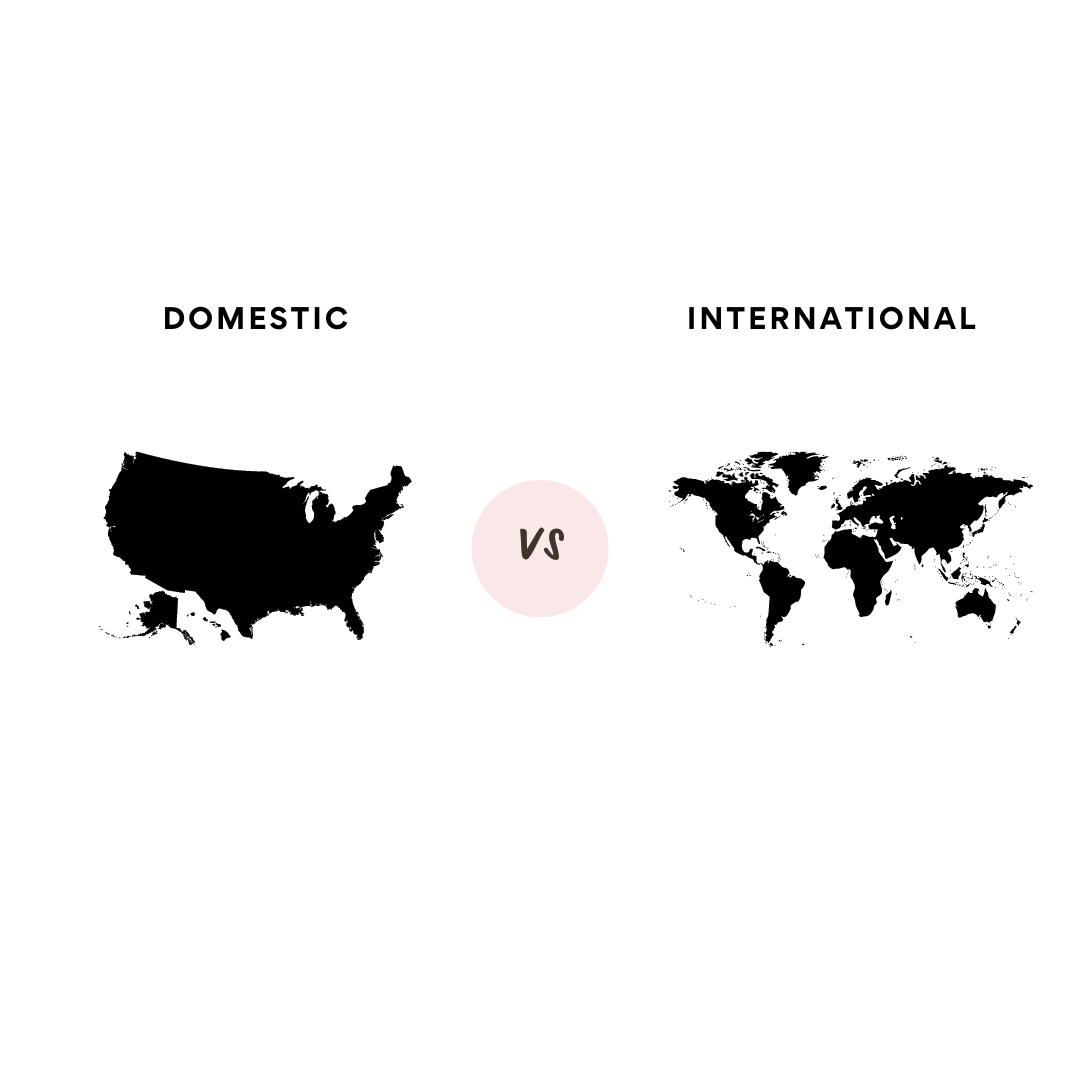What is an International Merchant Account?
Any business that wants to accept credit and debit card payments from their customers needs to open a merchant account. This account works as a middle-man between the customer and the business, requesting the payment from the customer and sending it to the business.
If a business wants to operate in more countries than just their own, however, they will need to open an international merchant account.
An international merchant account is a type of bank account that allows businesses to accept payments from customers around the world in multiple currencies. With an international merchant account, businesses can expand their customer base and tap into new markets without the limitations of accepting payments only in their local currency.
International merchant accounts are typically offered by specialized payment service providers or acquiring banks. These providers and banks work with various payment processors and networks to offer businesses the ability to process payments from customers around the world.
To open an international merchant account, businesses are typically required to provide certain documents and information, such as business registration documents, financial statements, and identification documents. The exact requirements may vary depending on the provider or bank.
With an international merchant account, businesses can accept payments in various ways, such as credit and debit cards, bank transfers, and alternative payment methods such as e-wallets. Transactions are processed in different currencies, and businesses receive their funds in their local currency after conversion at prevailing exchange rates.
Having an international merchant account can be beneficial for businesses looking to expand their customer base globally. However, it is important to note that there may be additional fees and regulations associated with accepting payments from different countries. It is important for businesses to research and understand these factors before deciding to open an international merchant account.
Domestic vs International Merchant Account
There are some key differences between domestic and international merchant accounts.
A domestic merchant account is an account used by businesses that operate primarily within a single country. The account allows the business to accept payments in the local currency, and typically involves working with a domestic payment processor or acquiring bank.
An international merchant account is used by businesses that operate in multiple countries, and require the ability to accept payments in multiple currencies. International merchant accounts typically involve working with a global payment processor or acquiring bank, which can provide the necessary infrastructure and support to handle transactions in different currencies and countries.
Domestic merchant accounts typically have lower fees and faster transaction times, as they involve fewer parties and simpler payment processing. International merchant accounts, on the other hand, may have higher fees and longer transaction times due to the complexities involved in processing payments across different currencies and regions.
The choice between a domestic and international merchant account will depend on the needs of the business, as well as its size and scope of operations.
Businesses that primarily operate within a single country may find a domestic merchant account to be the most cost-effective option, while those with international operations will require an international merchant account to effectively manage their payment processing needs.

Who Needs an International Merchant Account?
Any business that operates in more than one country needs to have an international merchant account. If the business sells products or services to customers located outside their home country, an international merchant account can help them expand their reach, increase their revenue, and streamline their payment processing.
Some examples of businesses that might need an international merchant account include:
- E-commerce businesses. If the business runs an online store and sells products to customers worldwide, they need a payment gateway that can process international transactions. An international merchant account allows the business to accept payments in different currencies, which makes it easier for customers to make purchases
- Travel businesses. If the business operates a travel agency or a hotel chain, an international merchant account can help them accept payments from customers located in different countries. This is especially important if they offer booking services online or through a mobile app
- Service providers. If there are services such as consulting, software development, or digital marketing provided to clients located in different countries, an international merchant account can help accept payments from them. This can help the business avoid the fees and complications that come with traditional wire transfers or international bank transfers
- Online marketplaces. If the business has an online marketplace that connects buyers and sellers from different countries, an international merchant account is essential. It allows fees and commissions to be collected from sellers located outside the home country and pay them in their local currency
Best Practices for Using an International Merchant Account
When using an international merchant account, it’s important to follow some best practices to ensure that transactions are secure and the business runs smoothly. Here are some best practices for using an international merchant account:
- Choose a reliable merchant account provider. Before selecting a merchant account provider, do the proper research to ensure that they have a good reputation and are reliable. Check their track record for security, uptime, and customer service.
- Understand the fees. International merchant account fees can vary widely, so it is important to understand all the fees involved, including transaction fees, currency conversion fees, and chargeback fees.
- Be aware of fraud risks. International transactions can be more susceptible to fraud, so make sure the business has proper fraud prevention measures in place, such as 3D Secure and AVS (Address Verification Service).
- Follow local laws and regulations. Make sure the business is aware of any local laws and regulations regarding international transactions, such as taxes, customs duties, and regulations regarding restricted items.
- Use secure payment gateways. Ensure that the business uses a secure payment gateway to protect sensitive customer information, such as credit card numbers and personal data.
- Monitor transactions. Keep an eye on all business transactions to identify any suspicious activity, such as unusually large orders or transactions from countries where the business doesn’t normally do business.
- Keep your customers informed. Communicate with customers regarding shipping times, customs fees, and any other relevant information to avoid misunderstandings and ensure a positive customer experience.
- Use local currencies. Offering the option to pay in the customer’s local currency can reduce transaction costs and increase customer trust.
- Have a backup plan. In case of any issues with the business’s primary merchant account provider, have a backup plan in place to ensure that customers can continue to make payments without disruption.

What to Look For in an International Merchant Account
It is always important to make sure a business tool is chosen with the business in mind. When looking for an international merchant account, it is essential to keep these following features in mind.
Multiple Currency Support
One of the most critical features of an international merchant account is its ability to process payments in multiple currencies. The main part of international business is allowing customers to pay in their own currency without having to worry about it.
Look for a provider that supports all the currencies that the business plans to operate in. This may result in higher transaction fees, such as currency exchange fees, but customers will be happier and feel more comfortable shopping with the business.
Security Features
Security is a top priority for any business, especially when it comes to processing payments. Look for a merchant account provider that offers advanced security features like fraud detection, encryption, and tokenization. This will protect both the business and the customer from unwanted transactions.
Payment Methods Accepted
Different customers prefer different payment methods, so it’s essential to choose a provider that supports multiple payment methods like credit and debit cards, e-wallets, and bank transfers.
Just like accepting multiple currencies, accepting multiple payment methods will help customers feel more confident and comfortable shopping with the business, especially one that is international.
Fees and Costs
Look for a merchant account provider that offers transparent pricing and competitive rates. Keep an eye out for hidden fees and charges, and ensure that the fees and rates are suitable for the business’s volume and transaction size.
Integration Ability
Consider how the merchant account integrates with any existing payment systems and software. Also look for a provider that offers seamless integration with the business website or e-commerce platform.
Support Provided
Check out the quality of customer support offered by the merchant account provider. It is important to make sure the business can quickly and easily get in contact with the merchant account provider if there are any issues or outages.
Benefits of Using an International Merchant Account
Using an international merchant account can bring a business so many benefits. These benefits include:
- Access to a global market. With an international merchant account, businesses can accept payments from customers anywhere in the world, which can greatly expand their customer base and increase sales
- Multi-currency processing. An international merchant account enables businesses to accept payments in multiple currencies, which can make it easier for customers to pay in their local currency and reduce the risk of currency exchange fees and other complications
- Lower transaction fees. International merchant accounts may offer lower transaction fees than traditional payment processing services, which can help businesses save money on payment processing costs
- Faster payment processing. International merchant accounts may offer faster payment processing times than traditional payment processing services, which can help businesses improve cash flow and reduce the risk of payment delays.
- Credibility. Accepting payments through an international merchant account can help businesses establish credibility with customers and partners around the world, which can be important for building trust and growing the business.
- Flexibility. International merchant accounts often offer greater flexibility in terms of payment processing options, such as recurring payments and installment plans, which can help businesses tailor their payment processing to their specific needs and the needs of their customers.

International Business? Sign up for an International Merchant Account with EMerchantBroker Today!
If you think an international merchant account is right for your business, start working with EMerchantBroker by submitting an application today. They can help you connect with customers in 35 different countries!


